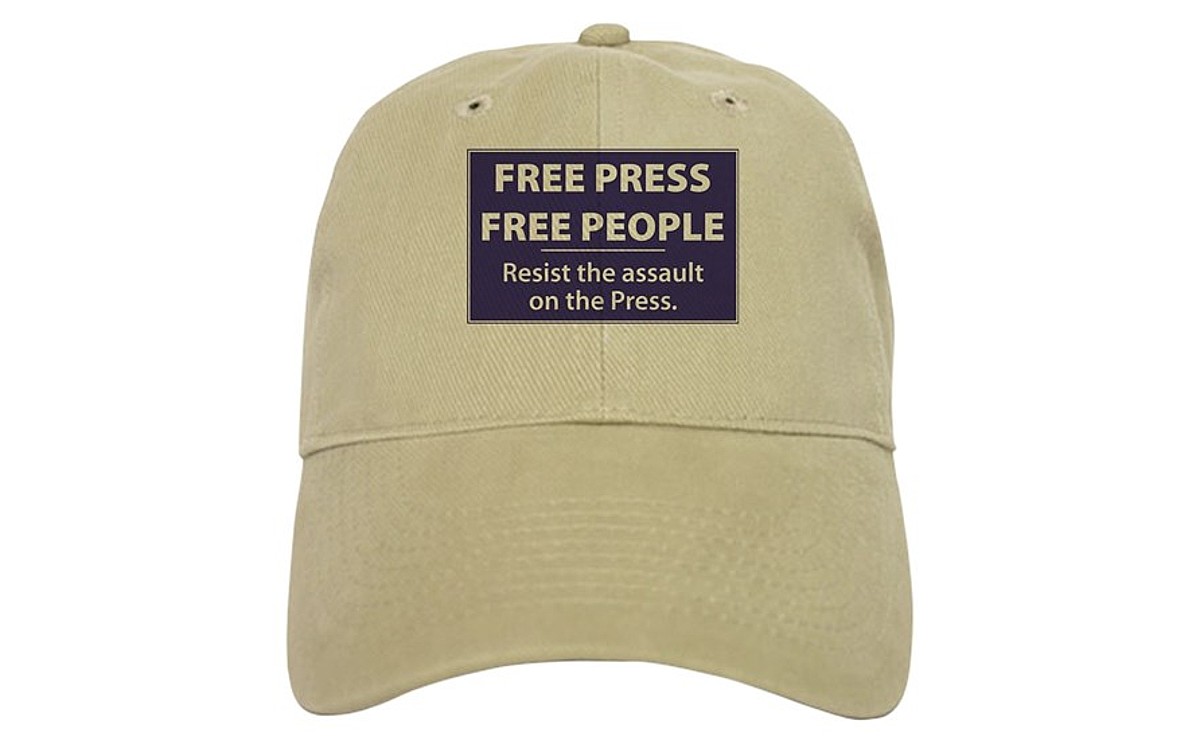
By Andy Brack, editor and publisher | The other day after a church meeting, someone commented, “We need a free press now, more than ever.”
 Let that sink in.
Let that sink in.
Why would someone say that? Is it because he doesn’t like the bombast of President Trump or she doesn’t like the preening of House Speaker Nancy Pelosi? Is it because they’re worried about the legitimacy of what they read on Facebook, Twitter or the Internet?
More than likely, it’s any or all of those things — but also something bigger: Trust. Americans, divided into warring factions of what they believe, increasingly have problems with trusting information that they receive from institutions in government as well as those that say what’s going on in government.
We are living in a period of history where we have more information than ever, but it’s blurred by unrelenting negative talk, “fake news,” lies, misrepresentations, soundbites and incomplete information. We are so overloaded by information that we find it hard to sift through and process everything before the next assault hits.
So how can you manage too much information? Perhaps you can curb and diversify your media diet. Find multiple sources of information — not just newsjunk put out by the tribe that spouts what you want to hear. If you’re a Democrat, you might need to focus less on The New York Times and more on The Wall Street Journal. If you lean Republican, tune in occasionally to CBS or PBS instead of Fox.
Despite what some people believe, reporters do not exist to make up news. Reporters are objective and report what they see, hear and uncover.
“Our democracy depends upon citizens having information about the activities of our government, and a press free from governmental control is essential to the functioning of our society,” says Jay Bender, longtime legal counsel for the S.C. Press Association.
The reason there is a constitutional protection for freedom of the press is because the British crown censored information during colonial times, Bender said. Patriots during the American Revolution fought to be free of the shackles of royal rule, including its curbs on information.
Then, as now, more information is better than less. Attacking verifiable facts is counterproductive and anti-democratic.
“The instinct of those in government today to attack the press and restrict the flow of information to the public is inconsistent with a government by the people and for the people,” Bender said. “A vigorous, free press is a wall between us and an autocracy, and must be defended for our democracy to survive.”
Richard Whiting, executive editor of the Greenwood Index-Journal, suggests the misplaced chants of “fake news” or the press being an “enemy of the people” are trickling into our towns and counties.
“It’s not just mainstream media that is under attack,” he said. “It’s the hometown newspaper that shares with its readers little Johnny’s victory on the football field, Suzie’s volleyball win. It’s the hometown paper that shares the story of a family’s struggles as their child battles a life-threatening disease, or the family burned out by a house fire. It’s the hometown paper that attends the school board, town council and county council meetings while Mom and Dad busy themselves with their lives, their children’s lives.”
And the irony, he says, is that those very same people will shout and raise Cain — “How did this happen? Why didn’t someone tell us?” — when a local, duly-elected governmental body votes to raise taxes or change zoning. Had they been paying attention — by reading their local newspaper — they might have acted upon solid information to create change, instead of grumbling and picking up the pieces later.
“A free press is essential to our democracy,” Whiting said. “It serves the public by being the watchdog of government so people can go about their daily lives. But more than that, we are the community’s mirror, reflecting the good, the bad and the ugly as we provide essential news and information right along with the stuff that crowds refrigerators and gets tucked away in scrapbooks.”
The free press is not your enemy. Her reporters keep America honest a lot more than her politicians do. Ask questions. Consume diverse information sources. Challenge your media comfort zone. To do less is to get sucked into what anti-democratic forces desire.
Andy Brack is editor and publisher of Statehouse Report.
- Have a comment? Send to: feedback@statehousereport.com.



The problem is really that the strident among us are not reading either the New York Times or the Wall Street Journal. They are probably not reading at all unless it is text messages in chat rooms that reinforce their point of view. You have to be literate to care about the printed word and to be able to tolerate non-screaming discussions about ideas that are different from your own. I have no idea how to fix this but thank you for the editorial. It was definitely needed at this point in our republic.
Pingback: 12/6, full issue: Pensions, whales, boomers, more whales – Statehouse Report – Short Term Wealth
Pingback: Charleston Currents – 12/9: Celebrating conservation; Boomers and boomlets; Whales